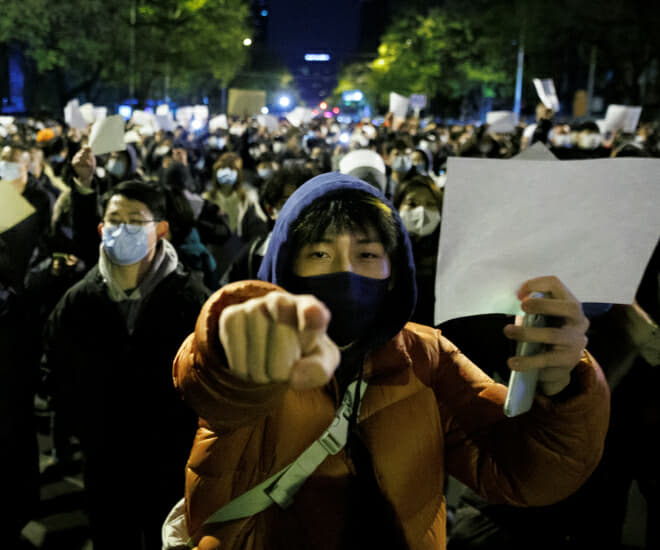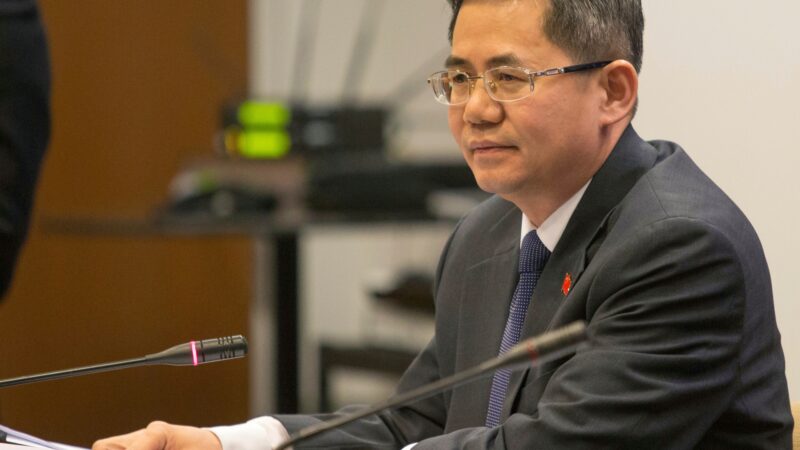Latest Posts
Further East presentation spotlights equality in hospitality | TTG Asia
Diversity, Equity and Inclusion (DE&I) was one of the key topics during the third edition of Further East, which returned to Bali earlier…
US Army app with Russian code reaped no user data, service says
WASHINGTON — An application approved by the U.S. Army that contained code from a Russian company harvested no information from the more than…
Opinion: Is China Still Credible?
Would China’s passive aggressive leadership and aggressive passion garner international support socially, politically and economically? China president, Xi Jinping is methodically building a…
Journey to the future with JobsDB | JobsDB TH EN Employer
As economies around the world are kicking back into gear, employers around the world are rebuilding their workforces, generating a demand for talent…
UK summons Chinese ambassador after arrest of BBC journalist
The British foreign office rebukes Zheng Zeguang after Ed Lawrence’s arrest and alleged assault in Shanghai. Published On 29 Nov 202229 Nov 2022…
Air New Zealand Adds Extra 200,000 Seats Per Year – Hotel Magazine
Air New Zealand has acquired second Airbus A321neo, adding an extra 200,000 seats per year to its domestic network. The new A321neo has…
Choice Hotels brings the Sleep Inn brand to EMEA
Choice Hotels EMEA has brought the Sleep Inn brand, already well established in other regions, to EMEA. The design-led lifestyle brand appeals to the growing number…
8 best hiking trails in Singapore that lead to good food
Exercise may be painful, but a meal at the end might make it more palatable. If that proves to be an incentive, here…
A One-Stop-Shop Vacation
There is something magical about pulling up to Kiawah Island, rolling down the windows, and letting a welcome committee of live oaks draped…
Marc Jacobs Re-imagines the Fendi logo for Fendi Roma Capsule collection | SENATUS
Marc Jacobs Re-imagines the Fendi logo for Fendi Roma Capsule collection Dropping December 1, the Fendi Roma Capsule features the logo as re-imagined…
Featured StoriesAll posts
Festeggia il Natale con le preziose e gustose box di CasAmica Onlus
A Natale resta con CasAmica: Aiutaci a costruire una nuova Casa di Accoglienza per i malati e i loro familiari. Per Natale scegli…
A Natale regala un sorriso ai bambini in ospedale: Riempi il tuo Natale di gioia e di solidarietà!
Consigli per una cucina a basso contenuto di grassi
Pasta fatta in casa
Cucina sana con le erbe fresche
Cioccolato benefici e proprietà
Ricette con la zucca: 8 ricette facili e veloci!
Tabella di conversione ricette Americane
Ricette per la cena con soli 5 ingredienti
TrufflEat

TrufflEat deals with importing and exporting food from Italy and exporting all over the world.
Follow us
SpotlightAll posts
Opinion: Is China Still Credible?
Would China’s passive aggressive leadership and aggressive passion garner international support socially, politically and economically? China president, Xi Jinping is methodically building a…
Featured VideosAll posts
Crypto Analyst Says Asian Markets Will Make DeFi Blow Up - Asia Crypto Today
DeFi projects have been flying high since the start of the year, from Kyber Network to Aave, to Compound and Balancer, among many…
China Trust Blockchain Committee Establishes CCAL Super Ledger - Asia Crypto Today
The China Trust Union Alliance Blockchain Committee has recently disclosed the launch of a blockchain project called CCAL Super Ledger. Also known as…
Ride-Hailing Giant Didi to Test Out DCEP to its 550 MIllion Users - Asia Crypto Today
China’s ride-hailing giant Didi Chuxing will soon pilot the country’s national digital currency (DCEP) as one of its supported payment methods. When rolled…
CBDC Arms Race Escalates as DCEP Gets Tested by Two More Giant Companies - Asia Crypto Today
China’s DCEP appears to be on fire as two multi-billion dollar companies have planned to test out the digital yuan as a payment…
Reader PicksAll posts
Sri Lankan authorities seize five Indian trawlers with 24 fishermen on board; 35 seizures this year
A special operation by the Sri Lankan Navy and the coast guard has led to the seizure of five Indian fishing trawlers and 24…
This new world-class hotel has taken over a heritage-listed building in Sydney - Signature Luxury Travel & Style
World-class accommodation and dining Partnering with The Bentley Group, the hotel restaurant will offer in-house guests and Sydneysiders a menu of modern brasserie…
Days after border clash, Pakistan junior foreign minister to visit Afghanistan
Pakistan’s Minister of State for Foreign Affairs Hina Rabbani Khar will lead a high level delegation to Afghanistan on Tuesday. Reports suggest that…
Pakistan Taliban calls off ceasefire with Pakistan government
Pakistan Taliban said on Monday (November 28) that the group was calling off an under strain ceasefire agreed with Pakistan government in June. The…
England Test captain Ben Stokes to donate his match fees to Pakistan flood victims
England skipper Ben Stokes has announced that he will be donating his match fees from the upcoming Test series against Pakistan to help…
Cash-strapped Pakistan to repay $1 billion ahead of deadline, says SBP governor
Pakistan will repay a $1 billion international bond three days before its due date, said the State Bank of Pakistan’s (SBP) governor, Jameel…
Bangladesh: China-funded first underwater tunnel to open in January
A Chinese-funded underwater traffic tunnel in Bangladesh is set to open in January 2023. A ceremony was held on Saturday (November 26) to…
Pakistan military's media wing calls reports of General Bajwa's wealth 'blatant lies and malice'
Pakistan’s Inter-Services Public Relations (ISPR) has come out in defence of the outgoing Chief of Army Staff (COAS) General Qamar Javed Bajwa. The…
'Will not be part of this system': Former Pak PM Imran Khan calls off long march in Islamabad to avoid 'chaos'
Imran Khan, Pakistan’s former prime minister, has called off his long protest march in Islamabad, fearing it would cause havoc in the country. …
Pakistan: Imran Khan announces PTI members will quit all assemblies
Imran Khan, the chairman of Pakistan Tehreek-e-Insaf (PTI) and a former prime minister, has declared that the “Haqeqi Azadi” march of his party…














































